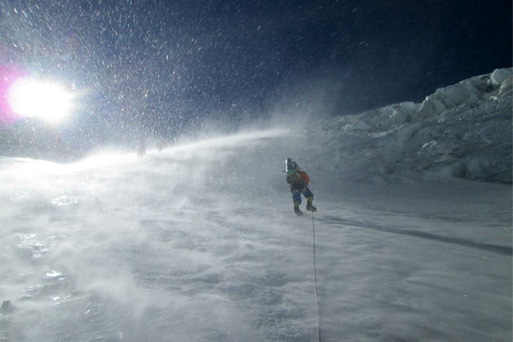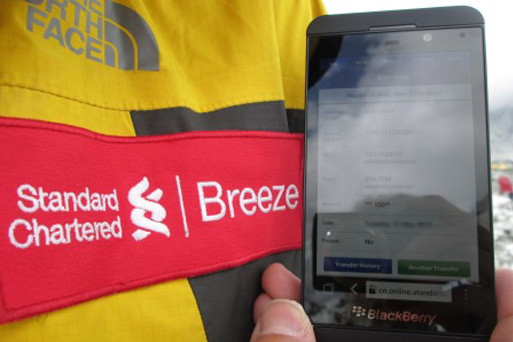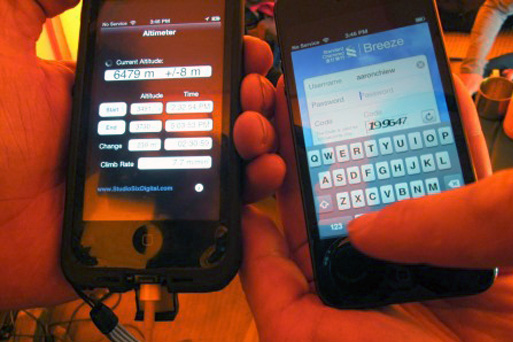We were talking about Bitcoin yesterday at the Financial Services Club Vienna, and there was a great dialogue about the difficulties of buying and then using Bitcoins.
I’ll talk more about the practicalities and details of that conversation later this week, but one thing did occur to me: Bitcoin, or something like it, will soon be a de facto online currency.
That’s why Bitcoin’s value has increased 1,000-fold in just two years, as the interweb is buying into the vision.
Soon, others will follow.
Soon, you will get to the checkout and, just as you see PayPal there today, you will see Bitcoin tomorrow.
In some ways that sounds ludicrous, but in other ways it makes sense and I’ve used that in my presentations for some time.
I show the BA checkout for buying a flight with the option to pay by Visa, MasterCard, PayPal or Facebook Credits or Bitcoins.
It gets a laugh.
It won’t in the near future.
The reason it is a serious venture is in the same way that many other emergent technologies are serious once they are seen.
You see them today, but you don’t.
We see wearable technologies, semantic web and cryptocurrencies emerging around us, and much of the time we scoff.
But we scoffed at a lot of other things in the past that we don’t scoff at today (is that too many scoffs in one sentence?).
Take mobile telephones.
I’m old enough to remember that when mobiles were first being used in the late 1980s/early 1990s, we thought they were for City idiots.
We had pictures of young professionals shouting ‘buy, buy, buy’ down their mobile phone and thought they were arseholes.
We said we would never use a mobile phone.
Ten years later, we all had one.
Twenty years later, we wouldn’t imagine life without one.
I remember ten years ago, using an MP3 player in the gym.
I went into the electronics store to buy one, and the assistant said to me: “oh, we used to stock those, but we don’t anymore as who would want to download music off the internet?”
Ten years ago, we were on dial-up lines that were slow for downloads. A movie would take a week to download (I know, ‘cos I tried it) and a 5Mb tune would take an age.
Who would want to download music off the internet?
Today, we couldn’t imagine life without it.
Or look at social media: Facebook and Twitter. Services that the mass populous had not heard of five years ago but, today, services they find indespensible.
Fifteen years ago, many banks launched internet banking services.
Customers wouldn’t use it though.
It was thought of as being insecure and technically difficult. Browsers weren’t ready for it, and dial-up lines made it awkward to use.
Today, we couldn’t imagine life without it.
Just ten years ago, payments were made in person or by telephone. Internet payments were available with PayPal but were, again, not trusted or used.
Today, PayPal is the de facto payment service for online.
But PayPal sits on top of the card and bank networks, is run by eBay and owned by America. It is not the internet currency of the wiki world.
That is why Bitcoin is taking off.
I’ll write more about Bitcoin later this week, but it reminded me of a conversation I had with a journalist from the Financial Times in 1997.
I was heading up the banking vision for NCR and said to him that we would soon be paying for anything, anytime, anywhere.
During the conversation, he said to me: “do you seriously expect me to believe that one day we could be paying for things from the top of Mount Everest?”
I said: “yep”.
Breeze @ Everest Camp 4 altitude 8,000m
At 8,000 metres above sea level, the perilous altitude at which no human being can adapt, the Horacios have successfully cleared the South Col.

After their first success at Base Camp of trading 50 Standard Chartered (2888.HK) shares on the HKEx, they attempted another transaction at Everest Camp 4 located at 8,000 metres.
Battling the freezing minus 40 below zero temperatures, winds of 100km/h and unstable connectivity in this perilous zone, our Horacios debuted our Breeze Balance app which launched a week ago on the iTunes App Store.

A successful transaction!
Breeze @ Everest Camp 3 altitude 6,500m
Our Horacios have successfully traded shares with Breeze Trade and conducted funds transfer with Breeze Banking at Everest Camp 3 located at 6,500 metres.
These are the highest banking transactions performed on planet earth and Standard Chartered Breeze has proven robust enough to be used at extreme altitudes.

This is part of a three part series on Bitcoin this week:
Part One: The relationship between Bitcoin and Mount Everest
We were talking about Bitcoin yesterday at the Financial Services Club Vienna, and there was a great dialogue about the difficulties of buying and then using Bitcoins. I’ll talk more about the practicalities and details of that conversation later this...
Part Two: What is this thing called Bitcoin?
Some of us know the numbers. If you’d invested $1,000 in Bitcoins in summer 2011, you would be sitting on around $500,000 today. That’s because we didn’t invest $1,000 in summer 2011. Nevertheless, some of us did invest $1,000 in...
Part Three: Bitcoin: all hype and bluster or a brave new world
The biggest question about Bitcoin is whether it’s really important or just a bubble that’s about to burst. Advocates would obviously claim the former and critics the latter, and both have some substance. On the advocate’s side, the economy is...
Chris M Skinner
Chris Skinner is best known as an independent commentator on the financial markets through his blog, TheFinanser.com, as author of the bestselling book Digital Bank, and Chair of the European networking forum the Financial Services Club. He has been voted one of the most influential people in banking by The Financial Brand (as well as one of the best blogs), a FinTech Titan (Next Bank), one of the Fintech Leaders you need to follow (City AM, Deluxe and Jax Finance), as well as one of the Top 40 most influential people in financial technology by the Wall Street Journal's Financial News. To learn more click here...

